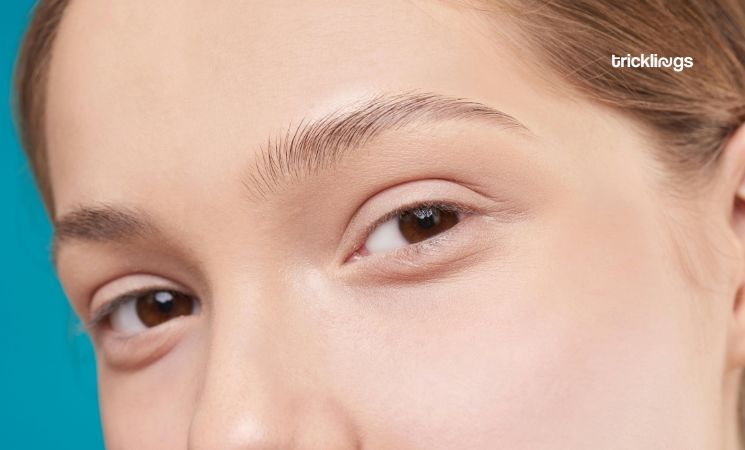Introduction to Peptides
What are Peptides?
Peptides are short chains of amino acids, and they serve as the critical building blocks of proteins within the body. Think of them as tiny messengers that convey important signals to the skin cells, instructing them to perform various functions essential for maintaining skin health. Unlike larger proteins that are more complex and harder for the skin to absorb, peptides are small enough to penetrate deeper layers of the skin, allowing them to work effectively where they are needed most.
Composition:
Typically composed of two or more amino acids.
Types:
- 1. Carrier Peptides: Help transport other essential molecules.
- 2. Signaling Peptides: Trigger cellular response and communication.
- 3. Enzyme Peptides: Catalyze biological reactions.
Benefits of Peptides in Skincare
The inclusion of wholesale peptides in skincare products offers a multitude of advantages that can rejuvenate the skin and combat noticeable signs of aging. Here are a few key benefits:
- 1. Stimulate Collagen Production: Peptides encourage the skin to rebuild and repair itself, promoting firmness and elasticity.
- 2. Minimize Wrinkles: They help in reducing the appearance of fine lines by enhancing skin fullness.
- 3. Hydration: Act as moisture magnets, ensuring that skin remains hydrated and balanced.
By incorporating peptide-rich products into daily routines, individuals can enhance their skin’s youthful appearance while enjoying the perks of a healthy, resilient complexion.
Understanding Aging and Skin
Common Signs of Aging
As individuals age, their skin naturally undergoes various changes, leading to visible signs of aging. Recognizing these common indicators can help one take appropriate steps towards maintaining skin health. Here are a few typical signs:
- 1. Wrinkles and Fine Lines: The first signs are often around the eyes, mouth, and forehead, where expression lines become more pronounced.
- 2. Loss of Elasticity: Skin may start to sag, losing its firmness and bounce due to decreased collagen production.
- 3. Uneven Skin Tone: Age spots, pigmentation, and dullness can occur, leading to an uneven complexion.
- 4. Dryness: Fine lines may be exacerbated by a lack of moisture, as the skin’s natural barrier weakens over time.
How Skin Changes with Age
Over the years, skin undergoes structural and functional changes influenced by factors such as internal biology and environmental exposure.
- 1. Decreased Collagen Production: Collagen, a vital protein for skin firmness, declines, resulting in less plump skin.
- 2. Slowed Cell Turnover: The skin takes longer to renew itself, leading to a buildup of dead skin cells and a dull appearance.
- 3. Thinner Epidermis: The skin’s outer layer gets thinner, making it more susceptible to damage and irritation.
Understanding these changes can empower individuals to adopt a proactive skincare routine that addresses aging skin effectively.
Role of Peptides in Anti-Aging
How Peptides Work in Skincare
Peptides are proving to be game-changers in the world of anti-aging skincare. These short chains of amino acids play a crucial role in stimulating the skin’s repair mechanisms. When applied topically, peptides act as messengers, signaling skin cells to produce essential proteins like collagen and elastin. Here’s how they effectively enhance skin quality:
- 1. Stimulate Collagen Production: As collagen naturally decreases with age, peptides encourage the skin to boost its synthesis, resulting in firmer and more youthful-looking skin.
- 2. Enhance Elasticity: They support the skin’s elasticity by promoting the production of elastic fibers, which helps reduce sagging.
- 3. Moisture Retention: Peptides can act as moisture magnets, sealing in hydration and keeping the skin plump and radiant.
Types of Peptides for Anti-Aging
Not all peptides are created equal; different types serve unique purposes in anti-aging treatments. Here are a few key categories:
- 1. Signal Peptides: Regulate collagen production and skin repair.
- 2. Carrier Peptides: Aid in transporting essential nutrients within the skin.
- 3. Neurotransmitter-Inhibiting Peptides: Help relax facial muscles, reducing the appearance of fine lines.
- 4. Collagen Peptides: Directly promote collagen synthesis.
Incorporating various peptides in your skincare routine can deliver comprehensive anti-aging benefits, helping you maintain that youthful glow for years to come.
Incorporating Peptides into Your Routine
Choosing the Right Peptide Products
When it comes to selecting peptide products, quality and formulation are key. With the abundance of options in today’s market, you may feel overwhelmed. Here’s how to simplify your choices:
- 1. Look for Serums or Creams: Opt for formulations that provide prolonged contact with your skin, such as serums and rich creams. Cleansers, on the other hand, won’t deliver lasting effects since they wash off.
- 2. Check Ingredient Lists: Aim for products where peptides are listed near the top of the ingredient list, ensuring a higher concentration.
- 3. Complementary Ingredients: Peptides work well alongside ingredients like niacinamide and hyaluronic acid. Avoid combining peptides with harsh acids, as this can reduce their effectiveness.
How to Use Peptides Effectively
To maximize the benefits of peptides in your skincare routine, consider these tips:
- 1. Consistency is Key: Incorporate peptides into both your morning and evening routines for optimal results.
- 2. Apply on Clean Skin: Always use peptides on freshly cleansed skin to enhance absorption and effectiveness.
- 3. Layering Products: Use peptide-containing products before heavier creams or oils to ensure they penetrate the skin deeper.
By thoughtfully incorporating peptides into your daily regimen, you can harness their remarkable properties to promote youthful, vibrant skin effectively.
The Science Behind Peptides
Clinical Studies on Peptides
Extensive research supports the beneficial effects of peptides on skin health. Numerous clinical studies have demonstrated that topical application of peptides can lead to improved skin texture, reduced inflammation, and diminished scarring. For instance, studies have shown that peptides can:
- 1. Enhance Collagen Production: By signaling skin cells to produce more collagen, peptides effectively combat signs of aging such as fine lines and loss of elasticity.
- 2. Strengthen the Skin Barrier: Research indicates that peptides help reinforce the skin’s defense against environmental stressors by promoting a healthier barrier function.
- 3. Diminish Discoloration: Peptides can even out skin tone and reduce hyperpigmentation through their anti-inflammatory properties.
Expert Opinions on Peptide Efficacy
Experts in dermatology view peptides as a promising advancement in skincare. Dermatologists often recommend peptides for their multifaceted benefits, noting:
- 1. Anti-Inflammatory Properties: Peptides can help mitigate chronic inflammation, which is essential in addressing various skin issues.
- 2. Versatility: They are effective across skin types and conditions, making them a valuable addition to skincare regimens.
- 3. Research Still Evolving: While current findings are promising, experts agree that more research is necessary to fully understand the extent of peptides’ efficacy.
In summary, the scientific backing and expert endorsements of peptides reinforce their role as key players in effective skincare solutions.
Potential Side Effects and Considerations
Allergic Reactions to Peptides
While peptides are widely regarded as safe and beneficial for the skin, it’s essential to be aware that allergic reactions can occur. Some individuals may experience:
- 1. Redness and Itching: Common indicators of an allergic reaction include localized redness and itching upon application, especially if the formulation includes additional irritants.
- 2. Rash: In some cases, a rash may develop, indicating sensitivity to one or more peptide variants.
- 3. Swelling: Severe allergic reactions can lead to swelling around the applied area, requiring immediate attention.
To minimize risk, it’s always a good idea to perform a patch test before fully integrating a new peptide product into your skincare regimen.
Precautions for Using Peptide Products
When using peptide-infused products, consider these essential precautions to maximize benefits while minimizing risks:
- 1. Choose Reputable Brands: Opt for products from well-established brands with transparent ingredient lists.
- 2. Consult a Dermatologist: If you have sensitive skin or are prone to allergies, seek professional advice before trying new peptide formulations.
- 3. Use as Directed: Follow the usage guidelines provided with the product to avoid overuse and potential irritation.
By taking these precautions and being mindful of any reactions, you can safely enjoy the myriad benefits that peptides offer your skin.












